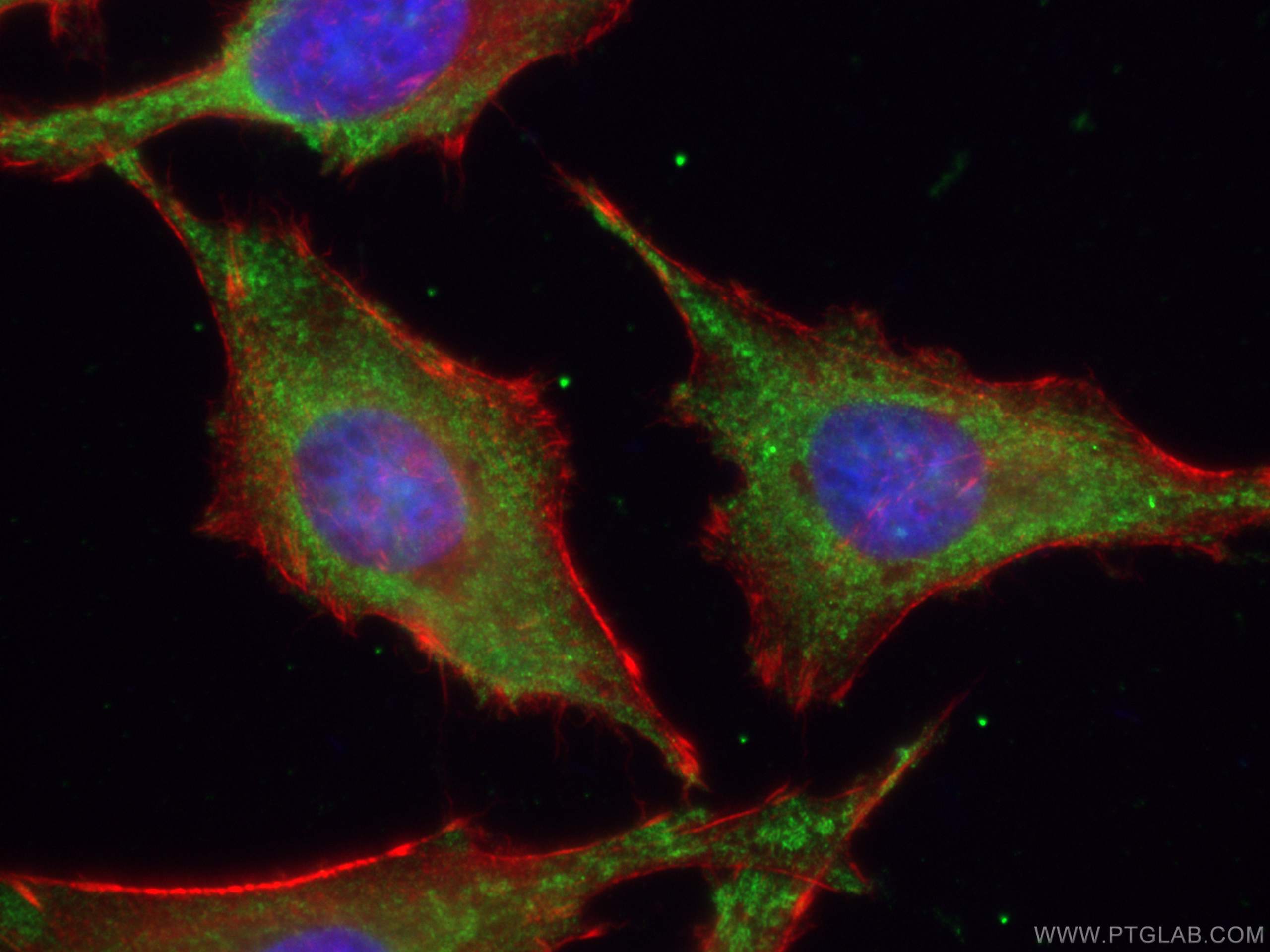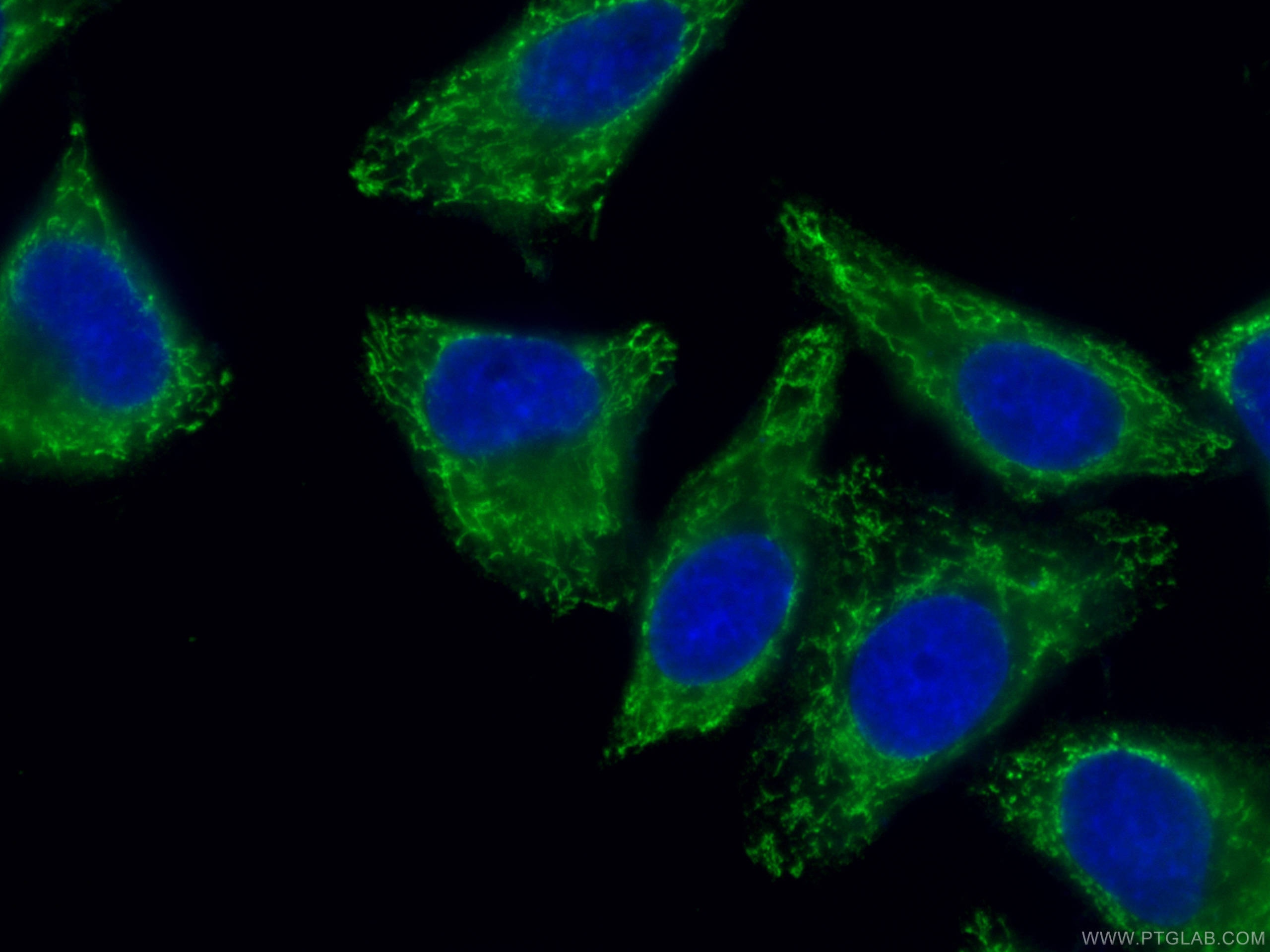Tested Applications
| Positive IF/ICC detected in | HeLa cells, HepG2 cells |
Recommended dilution
| Application | Dilution |
|---|---|
| Immunofluorescence (IF)/ICC | IF/ICC : 1:50-1:500 |
| It is recommended that this reagent should be titrated in each testing system to obtain optimal results. | |
| Sample-dependent, Check data in validation data gallery. | |
Product Information
CL488-67096 targets ATG9A in IF/ICC applications and shows reactivity with Human samples.
| Tested Reactivity | Human |
| Host / Isotype | Mouse / IgG1 |
| Class | Monoclonal |
| Type | Antibody |
| Immunogen | ATG9A fusion protein Ag24278 Predict reactive species |
| Full Name | ATG9 autophagy related 9 homolog A (S. cerevisiae) |
| Calculated Molecular Weight | 837 aa, 94 kDa |
| Observed Molecular Weight | 94 kDa |
| GenBank Accession Number | BC065534 |
| Gene Symbol | ATG9A |
| Gene ID (NCBI) | 79065 |
| RRID | AB_2883397 |
| Conjugate | CoraLite® Plus 488 Fluorescent Dye |
| Excitation/Emission Maxima Wavelengths | 493 nm / 522 nm |
| Form | Liquid |
| Purification Method | Protein G purification |
| UNIPROT ID | Q7Z3C6 |
| Storage Buffer | PBS with 50% glycerol, 0.05% Proclin300, 0.5% BSA , pH 7.3 |
| Storage Conditions | Store at -20°C. Avoid exposure to light. Stable for one year after shipment. Aliquoting is unnecessary for -20oC storage. |
Background Information
ATG9A is the only transmembrane ATG protein essential for autophagy. It plays a key role in the organization of the preautophagosomal structure/phagophore assembly site (PAS). It has been reported that ATG9A expression is increased in oral squamous cell carcinoma and breast cancers. The inhibition of ATG9A can lead to an inhibition of cancer cell proliferation and invasion.(PMID: 29437695, 29568063)
Protocols
| Product Specific Protocols | |
|---|---|
| IF protocol for CL Plus 488 ATG9A antibody CL488-67096 | Download protocol |
| Standard Protocols | |
|---|---|
| Click here to view our Standard Protocols |





